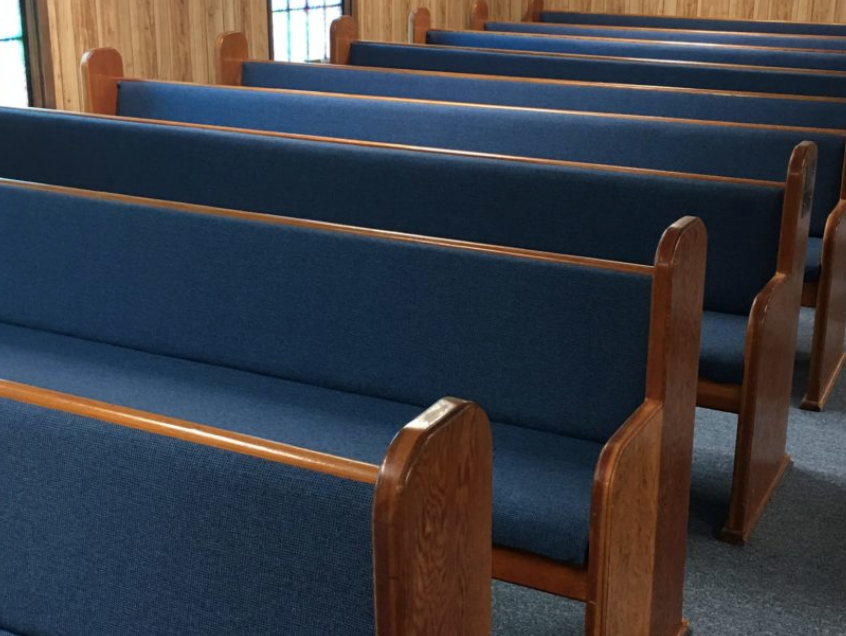Only a candidate like Joe Biden is so problematic he could lose to a candidate like Donald Trump.
Only a Trump is so problematic he could lose to a Biden. That’s one way to frame what the early polls are telling us about Americans’ attitude about their 2024 choice.
Since Biden is so far successfully freezing out major Democratic competitors, the big question for journalists is whether any Republican can dethrone Donald Trump. Hovering over that – as always with Republicans – is how active churchgoers will assess the large flock (once again) of dump-Trump hopefuls in the winner-take-all primaries.
Take the newbies. Can Ron DeSantis’s grumpy Trumpiness freed from Trump’s baggage prevail, or the exact opposite?
Tim Scott’s Reagan-esque sunniness plus religiosity Trump lacks?
Can former Nikki Haley straddle both Trumpers (playing for Veep?) and anti-Trumpers?
Can pious Vice President Mike Pence overcome hostility from both those sides? Would Chris Christie eviscerate ex-pal Trump but without winning, as with Mario Rubio 2016?
If the more cheerful Asa Hutchinson or Chris Sununu also assail Trump, won’t they alienate his base? Would a rumored Glenn Youngkin entry come too late? Do the others have any hope?
By such common calculations, Trump appears all but inevitable 58 weeks before the nominating convention. But with such a surreal candidate – with coming courtroom tangles – might those pious Republicans shock the pundits? Wouldn’t that be a story?
The news media shouldn’t forget the religion angle with the Democrats and Joe Biden’s currently lethargic campaign.
GetReligion’s own Ryan Burge notes that as recently as the Nixon-Ford-Carter days, the party commanded 55% support from white Christians but now only 32%. Thus the Dems rely upon “nones” who lack any religious identity or affiliation. At 29% or more of voters, they’d seem to give Democrats a lock on winning the White House and Congress, especially when you factor in the party’s grip on Black Protestants, Hispanic Catholics and Jews.
Not so simple, says political scientist Burge, who analyzed those odds in this post. His new, data-driven Substack column immediately becomes a key resource for journalists and activists dealing with politics or religion; subscriptions off the home page cost $50.
Burge, who’s just out with a second edition of his “The Nones” (Fortress paperback), distinguishes between outright atheists and agnostics versus the different and far larger number whose non-religious identity is “nothing in particular.” They went 55% for Hillary Clinton and 63% for Biden. Yes, but “there still a ton of Protestants and Catholics in the Democratic coalition, 44% in fact.”
Thus, Democrats have gained a big flock of Nones and lost a big flock of white Christians. Out of the nation’s 25 largest predominantly white Protestant denominations only two, the Episcopal Church and United Church of Christ, have clear Democratic majorities. We are talking about denominations that are, of course, experiencing deadly levels of decline.
While most atheists are energetic activists, the “nothing in particulars” are not so heavily Democratic and are as disengaged from politics as they are from churches. Unlike religious voters, they’re hard to locate and mobilize, and less inclined to bother voting.
Here’s a related Burge item for ReligionUnplugged that analysts should note — “Did The Election Of Donald Trump Drive People From The Pews?“ He reports political scientists’ consensus that the Trump phenomenon has driven sizable numbers out of religious involvement — and into the Democratic Party.
Meanwhile, evangelicals gain but due to political and cultural connotations rather than beliefs. The bottom line: Americans now appear to pick “their religion based on their politics, not their politics based on their religion.”
Getting back to the first paragraph above, journalists should note that in 21 of the 24 most recent Gallup Polls, 40% or more identified as Independents, swamping both Democrats and Republicans.
With such instability, could a “No Labels” ticket of, say, Republican Larry Hogan and Democrat Joe Manchin (both Catholics, by the way) scramble everything next year? In a non-scientific online poll last Saturday, 58% of 30,097 CNN viewers were “open to the idea” of voting for a third party in 2024.
Stay tuned.

